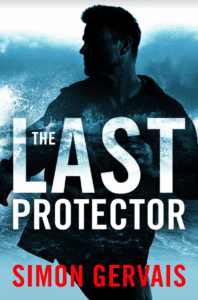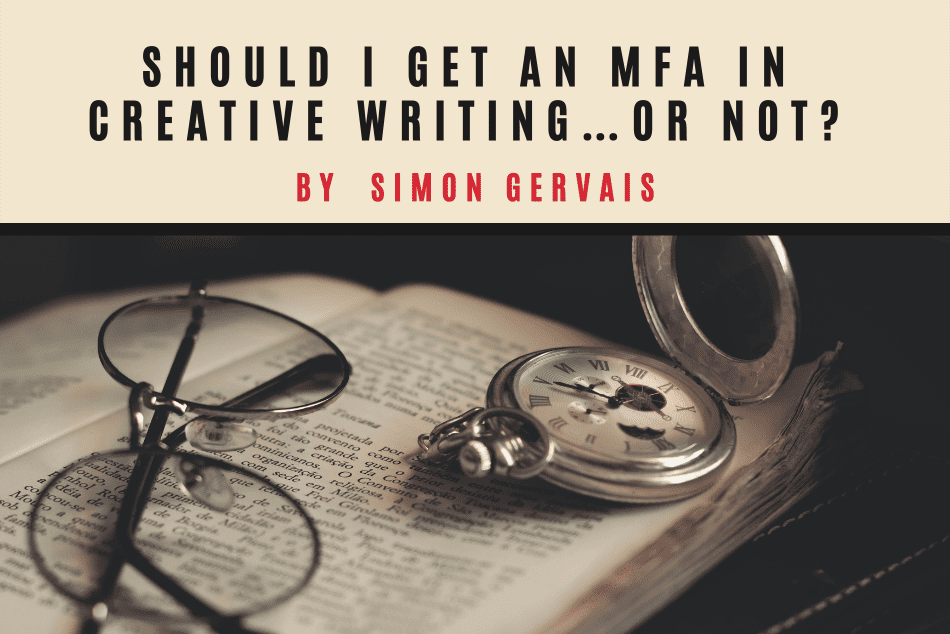I usually avoid participating in debates on publishing topics that are known to be divisive—at least on a public forum, and especially online. Whatever the subject, there are always two sides to an argument and more often than not the comments aimed at the other side quickly take a self-righteous and condescending tone.
Not my cup of tea.
My time is precious, and I chose a long time ago not to spend it fighting with keyboard warriors. That being said, MFAs aren’t cheap, and I know for a fact that many aspiring thriller novelists are caught in a tough decision-making process when it comes to choosing between investing time and money into an MFA in Creative Writing or not. I’m not about to pick a side, but I believe I can offer helpful thoughts on the subject as someone who managed to make it without a university degree, let alone a Master of Fine Arts.
Truth is, getting an MFA had never been an option for me. Heck, I didn’t even know such programs existed until a few years back. And never in my mind did I think I would one day write spy/military thrillers for a living. My path to a full-time writing career is different than most, although many friends of mine, including Joshua Hood, Jack Carr, and Don Bentley, have joined the group of ex-cop/military writers in recent years. I joined the Canadian Forces as an infantry officer in 1997 and ended up joining the Royal Canadian Mounted Police in August 2001. For my American friends, the RCMP is the Canadian version of the FBI, ATF, Secret Service and DEA all in one. It took me approximately six years to write my debut novel while working as a federal agent and another two before it was finally published in 2015.
I’m presently writing my 10th novel. And I’m loving it.
Although getting published and working as a full-time novelist in this day and age is an uphill battle—and that’s especially true if your objective is to sign a six- or seven-figure deal with a large publishing house—I strongly believe it isn’t an unrealistic objective if you’re willing to put in the work. The path to that elusive book deal is different for everyone, but whatever route you take, know this: There are no shortcuts.
Years ago, New York Times bestselling author Steve Berry told me over the phone that to become a successful thriller writer an individual needed three things:
—Luck
—Talent
—Contacts
LUCK
I think we can all agree that in this business luck can play a significant role. It is unfortunate, but that’s part of the game. How often do agents turned down manuscripts simply because they just signed an author with a book a bit too similar to yours?
It happens all the time. It happened to me.
That’s also true when it comes to publishing houses. You might have written an outstanding novel, but if an imprint recently acquired a book akin to yours, the editor is unlikely to pick your manuscript too.
That too happened to me. More than once.
Eric Myers of Myers Literary Management—Eric, who’s now a close friend, has been my agent since 2013 and helped me land deals with Penguin Random House, Thomas and Mercer, and The Story Plant—had to explain to me that success in this business was often a question of timing.
You need to have the perfect book ready to go at the right time to the right editor.
TALENT
Talent—and determination—are a given because finishing a quality 400-page manuscript isn’t an easy endeavour. In my opinion, this is when an MFA can come into play. If you can manage to get through a two- or three-year intensive writing program, there’s no doubt in my mind you’ve acquired the patience and the skills necessary to write a full-length novel. That’s a fabulous start. But here’s a hint not many people will say out loud:
You don’t need to be the best scribe to get a publishing deal.
The skill you absolutely can’t go without if you want to break through the oversaturated field of thriller writers is the ability to consistently write books people want to read and buy. If you can’t manage that, if you can’t bring that to the table, your sales numbers won’t be where they need to be, and you’ll be dropped by your publishing house without a second thought. Publishing—like most businesses—is a numbers game. Large publishers have insanely huge overhead expenses, and they can’t afford to fail too many times. Most MFA programs are geared toward literary fiction, poetry, and creative nonfiction. These curriculums will teach you the synthesis of large ideas, rhetoric, and logic—skills that are certainly relevant to most careers—but will they teach you how to write fast-paced thrillers?
Maybe. Maybe not.
What I do know is that it is possible to learn how to build suspense in a novel by reading a lot of books from authors you admire and appreciate. Most of my author friends who make good livings at writing thrillers are voracious readers. They’ll read or listen to at least three or four books per month. If you’re serious about learning the craft, you should do the same and pay attention to the methods and techniques your favorite authors use to build tension and advance the plot. After a while, you’ll figure out a way to make it work for you.
Writing a book isn’t rocket science, but it takes perseverance and ardour. All I’m saying is that if you don’t have the funds necessary to finance an MFA, there are plenty of options and less expensive ways to educate yourself about the craft. As I mentioned above, reading books is one of them even if they’re outside your genre. Reading outside your genre will make you a better writer. That I can guarantee. Another way to learn and improve your craft is to attend writers’ conferences. For an aspiring thriller novelist, ThrillerFest and Bouchercon are the two conferences you shouldn’t miss. Which brings me to my third point.
CONTACTS
In publishing, the importance of knowing the right people can’t be overstated. Writers conferences are most probably the only times when you’ll have the chance to meet literary agents and editors in person to discuss your manuscript. Plenty of writers I know have met their agent at a writers’ conferences—me included. I met my agent and my two current editors at ThrillerFest. Not only will you meet industry professionals, these conferences will also give you the opportunity to network with other authors and learn a lot about how the publishing industry actually works, which in my opinion is as equally important for your career as the actual craft of writing.
Over the last half a decade, I was able to carve myself a place among a difficult and saturated industry without an MFA. It can be done. No agent or editor has ever asked me if I had an MFA. What matters the most to agents and acquiring editors alike is the book you’ve written, not the path you took to get it done.
What is your opinion on topic? Join the discussion Facebook.
 A former federal agent specialized in protective operations and counterterrorism, Simon spent nearly twenty years in the military and in law enforcement. His assignments took him all over Europe and the Middle East. He’s now a full-time novelist and is the bestselling author of the Pierce Hunt series. His new thriller THE LAST PROTECTOR is the first book in a new series
A former federal agent specialized in protective operations and counterterrorism, Simon spent nearly twenty years in the military and in law enforcement. His assignments took him all over Europe and the Middle East. He’s now a full-time novelist and is the bestselling author of the Pierce Hunt series. His new thriller THE LAST PROTECTOR is the first book in a new series  featuring Secret Service Special Agent Clayton White. Simon is represented by Eric Myers of Myers Literary Management.
featuring Secret Service Special Agent Clayton White. Simon is represented by Eric Myers of Myers Literary Management.





